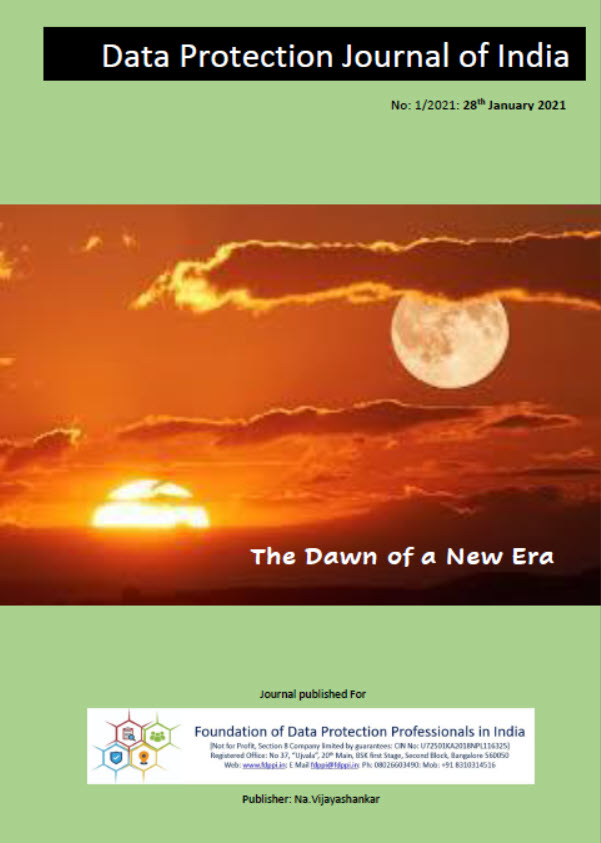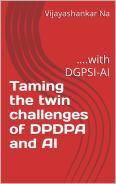The budget session 2021 of the Indian Parliament is being eagerly watched for several reasons. While the traditional financial pundits will look forward to the Post Covid budget to take the country on a revival path, observers of the Data Privacy scenario are waiting for the PDPB 2019 to be introduced for final passage with the amendments suggested by the JPC. This bill is yet to be placed before the Parliament as it has to be cleared first by the Cabinet. This may happen during the end of week 1 of the session.
In the meantime, the much awaited bill to regulate crypto currency system and to more specifically, ban the Bitcoin and its brother crypto systems which are the “Digital Black Money” of India is being taken up in the Parliament for discussions and passage during this session.
Considering the high stakes of political parties in Bitcoins and crypto currencies, we may expect a fight to scuttle this bill in this session much more than the fight on the farm bills. However, it is our hope that the bill will finally be passed and one of the long fought battles of Naavi.org will come to a welcome conclusion.
The Bill is called “Banning of Crypto Currency & Regulation of Official Digital Currency Bill 2019” (Crypto bill). It has 27 sections.
According to the Act,
Whoever directly or indirectly mines, generates, holds, sells, deals in, transfers, disposes of or issues Cryptocurrency or any combination thereof or
Whoever directly or indirectly promotes, issues any advertisement, solicits, abets or induces any participation in any activity involving the use of Cryptocurrency
shall be punishable with imprisonment which may go upto 10 years and a fine upto Rs 25 crores.
The second schedule makes consequential amendments to the Money Laundering Act 2002 and brings mining, holding, selling, dealing in, advertising, soliciting etc etc of Crypto currencies within the provisions of this Act under which an imprisonment of upto 10 years is provided for.
The definition of Crypto currency as per the Act is
―Cryptocurrency‖, by whatever name called, means any information or code or number or token not being part of any Official Digital Currency, generated through cryptographic means or otherwise, providing a digital representation of value which is exchanged with or without consideration, with the promise or representation of having inherent value in any business activity which may involve risk of loss or an expectation of profits or income, or functions as a store of value or a unit of account and includes its use in any financial transaction or investment, but not limited to, investment schemes;
The Act at the same time introduces the concept of an official crypto currency which may be called a “Digital Rupee”. The Act recognizes “Foreign Digital Currency” as “any class, category or type of digital currency recognised as legal tender in a foreign jurisdiction;”.
The prohibition under the Act is that
” No person shall mine, generate, hold, sell, deal in, issue, transfer, dispose of or use Cryptocurrency in the territory of India.”
Exception are available for research, education and does not affect the use of blockchain technology.
The possible recognition of a foreign digital currency is an enablement which requires specific notification.
Prohibition also extends to use of Crypto currency as a medium of exchange or a store of value or a unit of account and as a legal tender or currency in any place in India.
It may be noted that
Where a violation under this Act has been committed by a body corporate, every officer of the body corporate who at the time the violation was committed, was in charge of, and was responsible to, the body corporate for the conduct of the business of the body corporate, as well as the body corporate, shall be liable for the commission of the violation;
Provided that an officer of a body corporate shall not be liable to be proceeded against for a violation committed by the body corporate under this Act, unless such violation is, – (a) shown to have been committed with the consent or connivance of that officer; (b) shown to have been committed with the knowledge of that officer, attributable to such officer due to the internal processes of the body corporate; or (c) attributable to the gross neglect on the part of the officer.
The passage of the bill will bring the long standing demand of Naavi.org to a conclusion. We hope the passage of the bill goes through without a problem.
We would like to point out the authorities to however include in the rules an exception that the definition of “Crypto Currency” as per Section 2(1)(a) does not include the value of Non Personal Data proposed to be unlocked in the “Non Personal Data Governance” regulation as envisaged.
P.S: The explanation that may be added could be as follows:
Explanation : The definition of “Crypto Currency” above excludes value assigned to any set of data representing an inherent right such as a domain name, trademark, copyright, patent or other right classified as an Intellectual property, and also any valuation of “data” or “personal data” as defined under Information Technology Act 2000.
Naavi
(Earlier articles on this site on Bitcoin may be accessed here)








